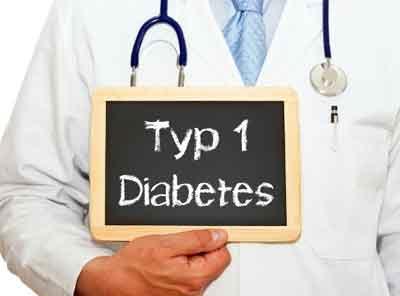- Home
- Editorial
- News
- Practice Guidelines
- Anesthesiology Guidelines
- Cancer Guidelines
- Cardiac Sciences Guidelines
- Critical Care Guidelines
- Dentistry Guidelines
- Dermatology Guidelines
- Diabetes and Endo Guidelines
- Diagnostics Guidelines
- ENT Guidelines
- Featured Practice Guidelines
- Gastroenterology Guidelines
- Geriatrics Guidelines
- Medicine Guidelines
- Nephrology Guidelines
- Neurosciences Guidelines
- Obs and Gynae Guidelines
- Ophthalmology Guidelines
- Orthopaedics Guidelines
- Paediatrics Guidelines
- Psychiatry Guidelines
- Pulmonology Guidelines
- Radiology Guidelines
- Surgery Guidelines
- Urology Guidelines
Antibiotics may up Type 1 diabetes risk in children

New York : Parents need to be extra careful while giving antibiotics to children as new research has found that the commonly-prescribed drug can significantly increase the risk of Type 1 diabetes.
In Type 1 diabetes, the immune system mistakenly destroys the islet cells in the pancreas that produce insulin. Without insulin, patients cannot properly control their levels of blood sugar (glucose), which builds up to damage nerves and blood vessels.
A study conducted on mice found that antibiotics changed the mix of gut microbes in their young ones and dramatically raised their risk for Type 1 diabetes.
"Our study begins to clarify the mechanisms by which antibiotic-driven changes in gut microbiomes may increase risk for Type 1 diabetes," said Martin Blaser, Professor at New York University (NYU) in the US.
In the study, the team examined the effects of exposure to either continuous low-dose antibiotics or pulsed antibiotic therapy (PAT), which mimics the doses used to treat many infections in children.
Short pulses of antibiotics caused non-obese diabetic (NOD) mice that are more susceptible to Type 1 diabetes to develop the disease more quickly and more often than mice not treated with antibiotics.
Specifically, male NOD mice exposed to PAT were found to have twice (53 per cent) the incidence of Type 1 diabetes as control NOD mice (26 per cent incidence) that received no antibiotics.
PAT did not significantly increase disease risk in female mice in one set of experiments, but did so in a second set of tests.
"This is the first study of its kind suggesting that antibiotic use can alter the microbiota and have lasting effects on immunological and metabolic development, resulting in autoimmunity," said Jessica Dunne, Director at Juvenile Diabetes Research Foundation (JDRF) which is a US-based research organisation.
As children's exposure to microbe-killing antibiotics has increased in recent decades, the incidence of autoimmune diseases like Type 1 diabetes has more than doubled, said the paper published in the journal Nature Microbiology.
For the research, the team collected samples of gut bacteria from NOD mice to determine the effects of antibiotics.

Disclaimer: This site is primarily intended for healthcare professionals. Any content/information on this website does not replace the advice of medical and/or health professionals and should not be construed as medical/diagnostic advice/endorsement or prescription. Use of this site is subject to our terms of use, privacy policy, advertisement policy. © 2020 Minerva Medical Treatment Pvt Ltd